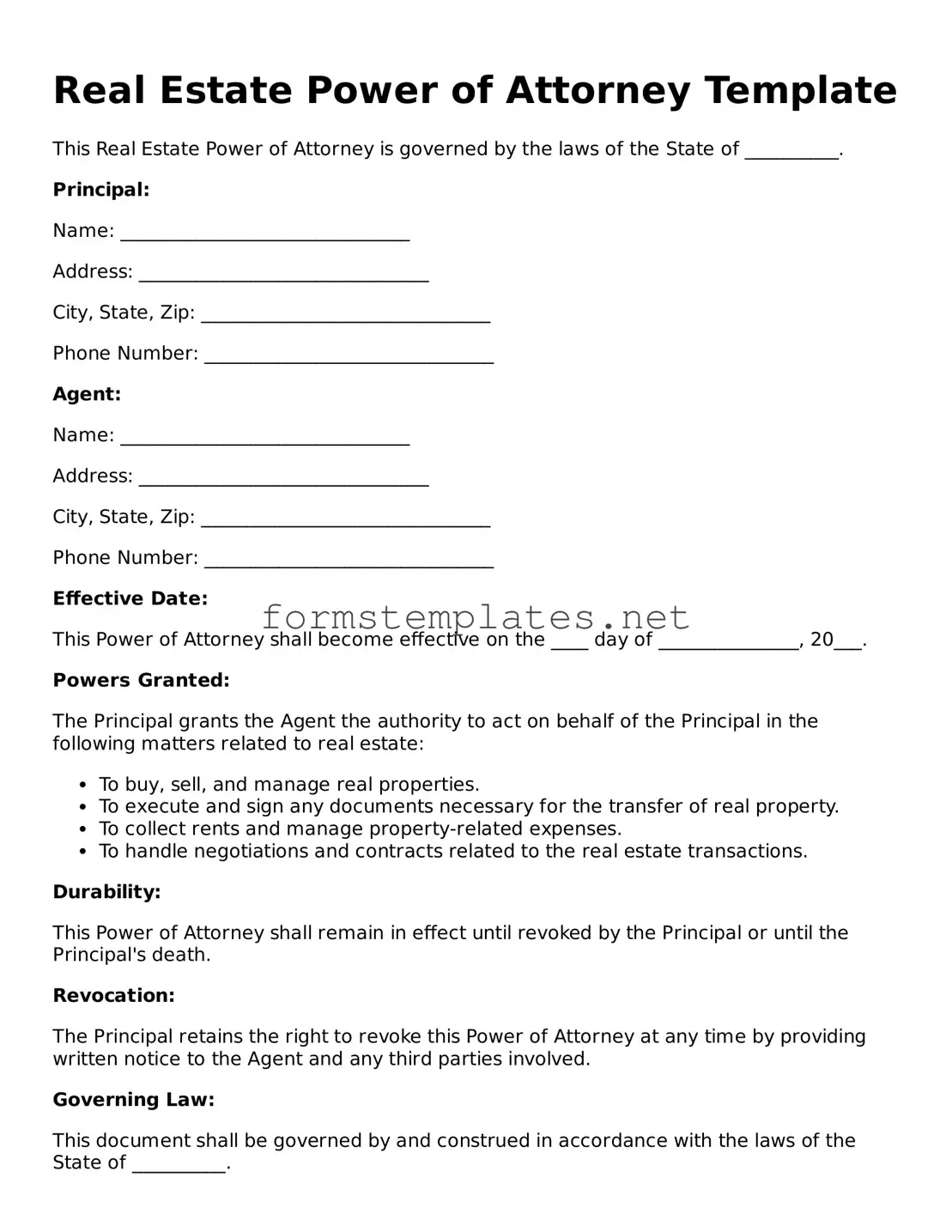Attorney-Verified Real Estate Power of Attorney Form
The Real Estate Power of Attorney form is a legal document that allows one person to act on behalf of another in real estate transactions. This form is particularly useful when the property owner cannot be present to sign documents or make decisions. By granting this authority, the property owner ensures that their interests are protected, even in their absence.
Open Editor Now

Attorney-Verified Real Estate Power of Attorney Form
Open Editor Now

Open Editor Now
or
⇓ PDF Form
Your form still needs attention
Finalize Real Estate Power of Attorney online — simple edits, saving, and download.